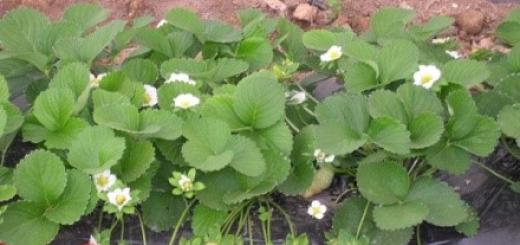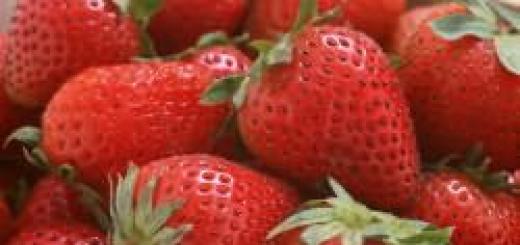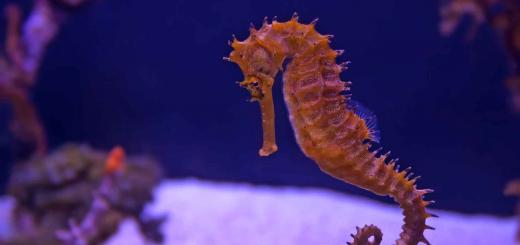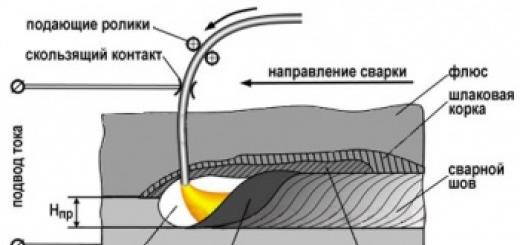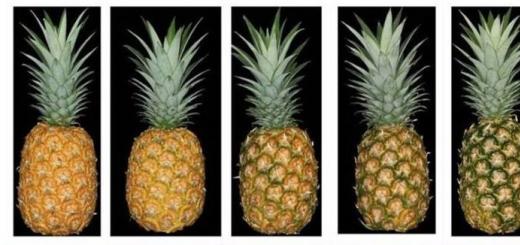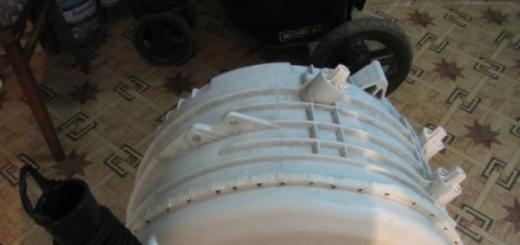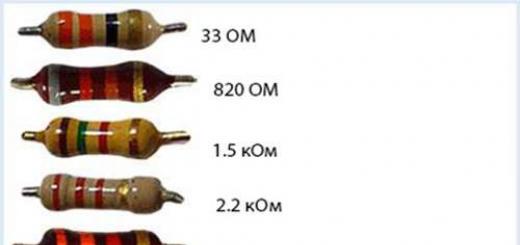Kitchen towels are an ideal environment for the rapid growth of bacteria, as they love warmth and moisture. Exactly because of this reason kitchen towels should be changed as often as possible, especially when used when cooking meat, fish or egg dishes. You can no longer wipe your hands or touch the dishes with a towel that was used to wipe a stain on the floor; you should be especially careful if there are small children in the house. Failure to comply with hygiene rules can lead to serious eating disorders.
The ideal option for the kitchen would be towels made of waffle fabric - 100% cotton fabric with a characteristic pattern. Waffle towels perfectly absorb moisture and do not leave scratches or lint on the surface. In addition, products made from this material are highly durable and resistant to mechanical, temperature and chemical influences. This is very important, since regular washing with powder often does not give the desired effect; textiles have to be soaked, bleached and disinfected.
An economical and simple option for washing kitchen towels is to use proven folk methods.

In order to efficiently wash dirty kitchen towels or towels, as they used to say in the old days, it is recommended to soak them in a cleaning solution before washing. During the soaking process, the stains soften and come off easily during subsequent washing. To make it even more effective, use one of the listed methods and tools.
Brine
Procedure:
- Dissolve 100 g of salt (5 tablespoons) in 5 liters of water.
- Immerse items in the solution for 2 hours.
- Wash with powder.
This method will help remove wine, tomato and coffee stains from both white and colored towels.
Soap
It is better to use, it has a higher percentage of alkali, which means it breaks down fat more effectively. The method is simple: properly soap the contaminated cloth and place it in plastic bag. Leave it like this overnight or for a longer time. Then rinse and the stains are gone.
Microwave
A method for removing stains similar to the previous one. Wet the towel and soap it thoroughly, put it in a plastic bag, but do not tie it. Place the package in the microwave for 1.5-2 minutes, setting the power to medium. Repeat the procedure 2-3 times, after which all that remains is to rinse.
Vegetable oil
It is added during soaking to restore freshness to even very dirty kitchen towels. The fats contained in the oil soften stubborn stains and restore the softness and brightness of colors to the fabric.
Procedure:
- Boil the required amount of water in a large saucepan.
- In a bowl, mix 2 tablespoons of washing powder, bleach and soda (amount per 5-6 liters of water). Pour the mixture into boiling water.
- Pour in 2 tablespoons of vegetable oil.
- Place dry (!) towels in the prepared solution and leave for 12 hours. To prevent the water from cooling down longer, cover the container with an old blanket or blanket.
- Remove the towels and put them in the washing machine on the normal cycle you always use. Or just rinse with your hands; no additional washing is required.
Advice! For particularly stubborn old stains, apply a mixture of baking soda, powder, bleach and oil directly to the stains. After several hours, the products are washed.
Washing with vegetable oil will remove stains, whiten and restore freshness to kitchen towels that have lost their appearance.
Vinegar
Using vinegar, you can successfully remove grease, mold, and musty odors from fabric. Immerse the towels in the solution: 3 tablespoons of acid per half bucket of water. Leave for a quarter of an hour and then wash.
other methods
For colored towels that are not heavily soiled, use the following tips:
- Shampoo. Pour a small amount onto the stain, leave for 20 minutes, and wash.
- Dishwashing liquid copes with fresh traces of fat. Dilute the product with water and soak towels in it, or pour the liquid directly onto the stain. Select the exposure time individually, from an hour to a day, then wash.
- Mixture ammonia and glycerin(1:4). Apply the solution to the stain and let it sit for half an hour.
Whitening
Use one of the suggested recipes to whiten kitchen textiles:
Mustard
Mustard powder has long been used not only for bleaching, but also for disinfecting fabrics. There are several time-tested recipes.
Method 1.
1. In a container of suitable volume, heat water or pour hot water (70-80 degrees).
2. Pour in a pack of mustard powder and stir.
3. Soak towels in this solution for 12 hours.
4. Machine wash with powder.
Advice! If there are only a few stains, to speed up the process, spread a paste of mustard powder on them, and rinse them after a few hours.
Method 2.
- In a saucepan with hot water(5-6 l) add a glass of mustard.
- Pour in a couple of tablespoons of sunflower oil and a tablespoon of acetic acid.
- Soak towels in this and leave overnight.
- Load the washing machine on the rinse cycle or rinse by hand.
Soda
Method 1.
The most popular household alkali is soda, which will perfectly refresh fabric. Pour about 100 g of soda (1/5 pack) into a bowl of water. Stir and place home textiles into the solution. To eliminate odors, apply a drop of any essential oil. Wait 3-5 hours and then wash.
Method 2.
To save time, baking soda can be poured directly into the powder compartment washing machine(3-4 tablespoons). At the same time, set the longest wash cycle and the highest heating temperature.
Potassium permangantsovka
Dilute washing powder in hot water and pour in 1⁄2 teaspoon of potassium permanganate. It is necessary that the water becomes pale pink. Immerse the washed (!) towels, place a lid on top or cover with film, wait until the solution cools. Then rinse.
Bleach
When deciding how else you can bleach kitchen textiles quickly and effectively, don’t forget about bleach. Use the product according to the instructions, but remember that with frequent use, caustic substances damage fabric fibers.
Advice! If the above methods do not give the desired result, boil the towels with stain remover or dish soap. But remember that you can only boil it after washing, otherwise the stains will “eat” even deeper into the fabric.
Rules for use and washing

- Always wash towels when you are hot temperature on an intensive cycle. Delicate washing is not suitable for such products, even if the label says otherwise. This mode will not ensure sufficient cleanliness and disinfection of the fabric. But you should spin at medium speed to save the fabric.
- Do not use fabric softener on kitchen textiles. It forms on the surface protective film, which, firstly, comes into contact with the dishes, and, secondly, prevents the item from being properly washed.
- Air dry towels before placing them in the laundry bin. This will inhibit the development of germs and mold.
- Stock up on enough towels to change them promptly.
- Provide separate towels for dishes, for covering baked goods, for hands, etc. Use a special napkin to wipe the table, and an oven mitt for hot items.
The cleanliness and tidiness of kitchen textiles worries every housewife. Kitchen towels perform not only a practical, but also an aesthetic function - they set accents in the interior and add coziness. But how to protect textiles from stains? How to wash kitchen towels and get rid of stubborn dirt? Especially for you, a review of the most effective and available ways in our article.
Cleanliness and appearance kitchen towels play an important role
Salt
Use salt to remove stains from kitchen towels. This method is universal and suitable for both white and colored fabrics.
Dilute the saline solution in a ratio of 1 tbsp. l. table salt per 1 liter of water (for severe dirt and stubborn stains, you can make a “stronger” solution). Soak the towels for at least 1 hour, and then wash as usual.
Salt will help get rid of stains, protect white linens from gray casts and maintain the richness of dark and bright towels. Simply add a cup of table salt to the rinse water.
 Use salt to remove stains from kitchen towels
Use salt to remove stains from kitchen towels
Laundry soap
Proven and effective remedy, if you want to wash kitchen towels from grease. Can be used for white and colored items.
Rub damp towels generously with soap, wrap in a plastic bag and leave overnight. In the morning, gently scrub the laundry and wash in the usual way. When washing by machine, to enhance the effect, you can add soap shavings to the drum of the washing machine.
 Laundry soap works well on greasy stains. However, it will not help get rid of old and ingrained marks. Soak and wash towels immediately after soiling.
Laundry soap works well on greasy stains. However, it will not help get rid of old and ingrained marks. Soak and wash towels immediately after soiling.
Soda
Baking soda is an effective stain remover and whitening agent. It acts gently on linen without disturbing the structure of the fabric.
Dilute baking soda with water (1 tablespoon per 1 liter of water) and soak the laundry for 1 hour. Then wash as usual. If you want to further whiten light-colored kitchen towels, add ammonia to the solution (0.5 tbsp per 1 liter of water).
If there are old marks on the towels, you can additionally treat them with soda paste before soaking. Mix baking soda with water to form a paste, apply to stains, and leave for 30 minutes. Then start soaking.
 Homemade fabric softener can be made from baking soda and a couple of drops of your favorite essential oil. Dilute the ingredients in water and rinse with kitchen towels
Homemade fabric softener can be made from baking soda and a couple of drops of your favorite essential oil. Dilute the ingredients in water and rinse with kitchen towels
Vinegar
You can remove grease, rust and mold from kitchen towels using table vinegar. Soak kitchen towels in vinegar (6% or 9%) for 15-20 minutes. Using a soft toothbrush, scrub particularly dirty areas and wash the laundry as usual.

Vegetable oil
Vegetable oil will help wash dirty kitchen towels. It softens dirt and copes well with stubborn stains.
Dissolve 2 tbsp in 5 liters of boiling water. l. vegetable oil, washing powder and dry stain remover (you can use shavings of laundry soap instead). Soak the laundry until the solution cools completely. After the procedure, wash the towels as usual. If the laundry is heavily soiled, you can soak it for several hours.
 To get rid of stains on kitchen towels, you can use both sunflower and olive oil.
To get rid of stains on kitchen towels, you can use both sunflower and olive oil.
Lemon acid
Citric acid will help remove stains and whiten kitchen towels. This way you can get rid of traces of tomato sauce and beets, as well as old stains.
Wash the towels, wring them out and sprinkle citric acid on the stains. Leave for impact. Fresh stains need 10-15 minutes, old stains will need about 1 hour. After the procedure, shake off the acid and rinse the towels.

Microwave
Modern housewives advise using microwave to wash kitchen towels.
Lather the towels with laundry soap and place them in a plastic bag. Wrap the bag (but do not tie it) and place in the microwave. In medium power mode, turn on the oven for 1.5 minutes. Take a minute break and start again for 1.5 minutes. Carefully remove the towels and rinse thoroughly in water. Stains and unpleasant odors will disappear.
 To remove a bag of laundry from the microwave, use tongs or oven mitts. Hot!
To remove a bag of laundry from the microwave, use tongs or oven mitts. Hot!
Dishwashing liquid
Regular dishwashing liquid will help remove greasy stains from kitchen towels.
Apply the product to the stains and leave for a day. After the procedure, rinse the towels thoroughly and wash as usual.
 After soaking in dishwashing liquid, rinse the kitchen towels thoroughly. Dish detergent foams a lot and can lead to unpleasant consequences.
After soaking in dishwashing liquid, rinse the kitchen towels thoroughly. Dish detergent foams a lot and can lead to unpleasant consequences.
Boiling
Although outdated, it is a very effective way to get rid of stains.
Dilute a standard amount of powder or soap shavings in an enamel bucket, add soda or salt to enhance the effect (1 tablespoon per 1 liter of water). You can add a little dishwashing detergent. Boil the towels for 30 minutes (or 1 hour if heavily soiled). After the procedure, rinse the laundry thoroughly.
 Never use the boiling method on brightly colored kitchen towels.
Never use the boiling method on brightly colored kitchen towels.
If you need to bleach
You can read about all bleaching methods in our article “How to bleach white things.” For printed towels and light-colored fabrics, you can use the following methods.
Hydrogen peroxide
You can wash kitchen towels at home using peroxide. It helps get rid of yellowness and old stains.
Pour peroxide onto stains or, for heavy stains, soak towels completely in the solution. Leave for 30 minutes and wash as usual.
 When using hydrogen peroxide to remove stains or bleach, remember that an open jar has a shelf life of 1 month. After this time, there will be no effect from use
When using hydrogen peroxide to remove stains or bleach, remember that an open jar has a shelf life of 1 month. After this time, there will be no effect from use
Potassium permangantsovka
A solution of potassium permanganate will help not only wash kitchen towels from old stains, but also bleach them.
Add a standard amount of washing powder to a bowl of hot water. Dissolve several crystals of potassium permanganate in a glass of warm water (make sure that the sediment is completely dissolved) and add to the water with the powder. Mix well and soak pre-washed laundry. It is better to cover the basin with cling film. Leave the laundry until the water cools down and then rinse thoroughly.
 A solution of potassium permanganate will not only help remove old stains from kitchen towels, but will also whiten them
A solution of potassium permanganate will not only help remove old stains from kitchen towels, but will also whiten them
Mustard
Mustard will help wash kitchen towels and get rid of greasy stains. The method is suitable for delicate fabrics and towels with colored prints.
Prepare a solution (1 tablespoon mustard powder per 1 liter of water) and let it brew for 3 hours. Then strain thoroughly using cheesecloth and immerse the towels in the resulting solution. Exposure time is from 30 minutes to 3 hours. After the procedure, wash your laundry as usual.
For stubborn stains, dilute mustard powder with warm water to a paste, apply the resulting product to the stains and leave for 6-8 hours. Clean off the mustard and wash the towels.
 Mustard powder is used to bleach and disinfect kitchen towels
Mustard powder is used to bleach and disinfect kitchen towels
Boric acid
Boric acid removes stains from waffle and terry towels well.
Dissolve 2-4 tbsp in a bowl of hot water. l. boric acid and soak the laundry for 2 hours. Then wash as usual.
To keep your kitchen towels clean and looking great, follow these simple tips:









Use the table and the stain removal methods described above for stains of various origins.
| Problem | Solution |
| Fruit stains | Apply hair shampoo to the stains, soak for 1-2 hours |
| Stains from coffee, tea and cocoa | Dilute ammonia with water 1:1, soak stains for 30 minutes |
| Tea | Mix ammonia and glycerin 1:4, apply to stains |
| Mold | Soak in vinegar or peroxide for 15-30 minutes |
| Yellow plaque | Hydrogen peroxide, laundry soap |
| Oily stains | Vegetable oil, dishwashing detergent |
| Unpleasant smell | Soda, potassium permanganate |
| Old stains | Peroxide, citric acid |
| Red wine | Salt + warm water |
| Tomato sauce, juices | Salt, soda, vinegar |
| Berries | Lemon juice and vinegar 1:1, apply to the stain for 15 minutes |
After soaking stains, be sure to wash towels as usual.
 Remember to sort your laundry by color before washing. Do not wash dishtowels with clothes and separate light-colored towels from bright and dark colors
Remember to sort your laundry by color before washing. Do not wash dishtowels with clothes and separate light-colored towels from bright and dark colors
Take care of your kitchen towels and they will keep you clean and fresh for a long time. We hope that our tips will be useful to you. Have you already tried one of the methods? Share your experience in the comments.
How to wash kitchen towels at home without spending the family budget on buying powders? There are many folk recipes for this that will solve the problem no worse than store-bought remedies.
Washing kitchen towels will not be very difficult if you remember a few important tips:
- Don't wait until the end of the week - change kitchen textiles once every 2-3 days. The longer your towel sits dirty in the hamper, the deeper the stain will set in;
- To effectively wash light-colored towels, set the highest temperature (90-100 degrees); for colored items, 40-70 is enough;
- Kitchen towels should not be washed together with items that have greasy stains on them;
- It's easy to bleach towels - first you need to wash them well and then boil them with bleach or bleach. If you throw towels directly into a bowl of boiling water, the stains will only become stronger;
- To kill microorganisms and disinfect the fabric, use an antiseptic. But don't overdo it, otherwise your towel will become thin and not very durable;
- After washing, you must iron it using the iron on the maximum setting. This will keep it looking fresh and clean;
- Do not wipe the stove, pots or table with a towel. A special napkin or kitchen sponge is more suitable for this;
- Very dirty towels should first be soaked for a couple of hours, and then washed using powder.
Homemade laundry products
To make all your towels shine and smell fresh and clean, choose any of these products as soon as possible.
Dry mustard
Thanks to dry mustard, which our grandmothers used, you can tidy up very dirty towels.
- Pour warm water over the mustard to make a porridge.
- Apply this mustard mixture to all stains.
- Leave for 2 hours.
- Wash the product by hand or put it in the machine.
Using this recipe, you can also bleach gray towels:
- Fill the bowl with hot water.
- Pour 1 pack of mustard into it.
- Mix well.
- Soak towels overnight.
- In the morning they need to be washed with powder.
Vegetable oil
Yes, yes, yes, don't be surprised! Washing kitchen towels using vegetable oil is very easy and simple:
- Pour 5 liters of water into a basin.
- Let it boil.
- Add 3 tbsp. l. bleach, machine powder and vegetable oil.
- Throw the towels in there and let it boil for about 1 hour.
- After 60 minutes, turn off the stove and let the solution cool. Be aware that the mixture with sunflower oil does not smell very pleasant, so the basin with the solution needs to be taken out to the balcony.
- When the water becomes cold, wash the towels.

Vinegar
Ordinary table vinegar- This is an excellent assistant for every good housewife, because it breaks down fat. Soak the towels in warm vinegar water (0.5 cup is enough) for about half an hour and wash in a machine.
Baking soda
Soda can efficiently wash even very dirty textiles. For washing, it is available in two versions at once.
Option 1 – for machine and hand wash
- Add baking soda to the washer drum or a bowl of water.
- Wash the towels, rinse and iron.
Option 2 – for boiling white towels
- Boil several liters of water in an enamel bucket.
- Add baking soda (1 cup) and stir.
- Immerse towels and boil for 1 hour.
- Wash them by hand or in the washing machine.

Dishwashing liquid
It will not only wash the dishes, but also quickly wash kitchen towels. You just need to apply a little detergent to the stains of dry textiles and leave it overnight. Dishwashing detergent produces a lot of foam, so you need to rinse the towel well before putting it in the machine. If the stains do not disappear, repeat again.
Laundry soap
A universal product that will not be superfluous for kitchen towels. This is an ideal choice for oily, old stains. Craftsmen know several methods for washing textiles with laundry soap.
Method 1 – for colored textiles:
- Lather the stains with soap.
- Place the towels in a plastic bag and tie it tightly.
- Leave the textiles overnight.
- They need to be washed in the morning.
Method 2 – using boiling:
- Fill the enamel container with water about halfway and let it boil.
- On a fine grater, grate a bar of laundry soap (72%) and add 3 tbsp. l. soda
- Stir this mixture until the soap dissolves.
- Immerse kitchen towels in the solution and simmer for half an hour over very low heat.
- Then they need to be washed in an automatic machine using powder and bleach.

Silicate glue
Another great product for washing dirty towels. The main thing is to rinse them immediately, otherwise the glue may remain in the textile fibers.
- Fill an enamel pan with water (3 liters) and bring it to a boil.
- Add silicate glue (1 tbsp) and washing powder (1 tbsp).
- Stir everything thoroughly so that there are no lumps left.
- Immerse the towels and boil for half an hour.
- At the end of the period, wash them in the machine and rinse thoroughly.
How to remove various stains from a kitchen towel?
How many times have we spilled red wine and coffee, black tea and fresh juices? How many times have these puddles been wiped off with a towel? That's it! It is probably already covered with a dozen spots. It's time to get rid of them!
Citric acid and hydrogen peroxide for old stains
- Moisten the stain with peroxide or citric acid dissolved in 100 grams of warm water;
- Leave for 3 hours;
- Soak the towel in warm water with the powder for about half an hour;
- Wash thoroughly.

Removing fruit stains with hair shampoo
- Throw a towel in hot water;
- After 10 minutes, squeeze it out lightly;
- Lather shampoo on fruit stains;
- Leave for half an hour;
- Wash and iron.
Ammonia for coffee stains
- Mix ammonia with water (1:1);
- Apply this mixture to the coffee stain;
- After 45 minutes, throw the towel into the water with the powder;
- After another quarter of an hour, wash it in the machine.
Remove wine stains with extra-class salt
- Prepare a mixture of salt and cold water;
- Apply it to the stains and scrub with a sponge;
- After 45 minutes, scrub the stains again;
- Wash the item in hot soapy water.

Laundry soap for unpleasant odors
How to wash kitchen towels at home, and at the same time remove the not-so-pleasant smell? Soap and ordinary potassium permanganate can help with this:
- Dilute potassium permanganate in water until slightly pink;
- Wash items with laundry soap;
- Immerse them in the solution and leave overnight;
- Rinse the next morning.
Now your kitchen textiles will be 100% clean!
Every day in the kitchen the housewife faces various types pollution. Stains from coffee, wine, tea, vegetables, butter, beets or meat broth are difficult to remove from dishcloths. Oily stains are the most painful problem. To remove such stains by hand will require a lot of effort and time, and regular machine washing will quickly ruin the fabric.
It turns out that there are several simple but effective ways that can extend the life of washed oven mitts and other things. With the right approach to washing, terry and waffle fabrics will retain impeccable freshness and pleasant appearance for many years.
How to remove greasy stains and unpleasant odors from kitchen towels by boiling?
Boiling is an old grandmother's method that very effectively removes dirt, greasy stains and fats from hard waffle towels, but is absolutely not suitable for colored and delicate fabrics. This method can be used if there is no washing machine in the house.

The method of boiling fabrics in hot water has its own characteristics. Below are the main nuances that affect the final result:
- for 4 liters of water (about the amount of liquid required to wash 8-10 dirty kitchen napkins), add 6 tablespoons of powder or bleach;
- cook the towels after boiling for 20 minutes to 1.5 hours, depending on the degree of contamination;
- After completing the procedure, the tissues are rinsed under cool running water.
If you don’t have powder on hand, you can replace it with a mixture of soda and laundry soap in a 1:2 ratio. Washing with the addition of soap alone is possible, but the cooking time must be increased.

To restore the whiteness of the potholders, add 25 g of soda ash and half a small bottle of hydrogen peroxide to a pan of boiling water along with the powder. The digestion procedure is continued for at least 1 hour.
How to do without boiling?
The boiling procedure brings visible results, but takes a lot of time from housewives. You can put textiles in order using others folk ways. How else can you wash kitchen towels at home without prolonged cooking?

It is not necessary to purchase expensive household chemicals and modern cleaning products. Objects and substances that can be found in any kitchen can rid your favorite things of ingrained dirt. The most effective and affordable means are listed below.
Microwaves will come to the rescue
What do a microwave oven and washing towels have in common? It turns out that with the help of a modern stove you can not only cook and heat food, but also easily get rid of yellow traces of fat and old stains.

It is necessary to thoroughly rub the towel with soapy water, then place it in a transparent plastic bag. Close the bag carefully (do not tie it tightly!) and put it in the microwave. Adjust the average power (450–600 W) and set the timer for 1.5 minutes. After the beep, open the door, carefully turn the bag over and turn on the oven again for 1.5 minutes. Then carefully remove the napkins, wash and hang to dry.
This method is quite simple, economical and accessible to any housewife. After washing in the microwave, kitchen towels will become fresh and there will be no trace of the unpleasant odor.
Soaking with salt, sunflower oil, mustard, vinegar or hydrogen peroxide
The simplest and most affordable products will help remove grease stains. For example, you can soak towels in a solution of table salt at the rate of 1 tbsp. l. product per 1 liter of water. The solution should be slightly warm. Soak soiled towels in it for about 1 hour, then wash and rinse in clean water. Salt perfectly removes stains and preserves color without harming the fabric.

Stubborn stubborn grease stains can be effectively removed with sunflower oil. To do this, you need to boil water in a saucepan, add a couple of tablespoons of oil and washing powder. Leave the towels in the water overnight and rinse in the morning as usual.
If you need to remove dried stains on colored fabrics, mustard will come to the rescue. To do this, you need to dilute 1 tablespoon of mustard powder in 1 liter of water, leave for 2 hours, strain the solution through a sieve or cheesecloth and immerse towels in it. The water should be slightly warm when mixed with mustard. After 2–3 hours, you can wash the towels as usual.
Using vinegar, you can refresh the color of kitchen textiles and get rid of unpleasant odors. To do this, add 1 tsp to 5 liters of water. vinegar. Place towels in the solution for 10–12 hours, then wring out and rinse in clean water.
Undiluted peroxide removes single stains well. A few drops of the product should be applied to the stain, left to act for half an hour, and then washed by hand or in a machine. This method is not suitable for delicate fabrics, but it removes old stubborn stains well.
Rubbing greasy fabric with laundry soap or citric acid
How to wash a towel that has stains from beets, carrots or tomatoes? Regular laundry soap and citric acid will come to the rescue.

You need to wet the cloth in warm water, then rub the towel generously with soap until foam forms. Lightly squeeze out excess moisture and sprinkle citric acid onto the stained area. Leave to act for 5-10 minutes and rinse thoroughly. If the stains are deeply ingrained, the exposure time of citric acid can be increased to 1 hour.
Using dishwashing detergent
In any kitchen there is a dishwashing gel that can be used not only for its intended purpose. With its help, housewives get rid of greasy stains on kitchen napkins. To do this, you need to apply the product precisely, leave it overnight, and in the morning wash the towel by hand or in the washing machine.

If the stain is old, it will not be possible to completely remove it the first time. In this case, the procedure is repeated after some time. It is not advisable to wash towels too often in this way - dishwashing detergent can corrode the fabrics.
Hand and machine wash
What is the best way to wash towels - by hand or in a machine? This does not affect the quality of washing. Most housewives choose the second method - having a washing machine in the house greatly simplifies housework and saves time.

Useful tips for washing towels in a machine:
- It is advisable to wash terry fabrics separately from others;
- Sorting by color is necessary - white towels cannot be washed with colored napkins;
- The drum should be filled no more than 2/3 full, otherwise traces of soap suds will remain on the towels;
- It is not advisable to wash kitchen towels using conditioner - this product is more suitable for bath terry products;
- the optimal machine washing temperature is 60 degrees for terry towels, 90 degrees for light waffle towels;
- After finishing washing, you must immediately remove the towels from the drum so that they do not smell damp and moldy later.

If you don’t have a washing machine, it doesn’t matter – terry and waffle fabrics can be washed just as well by hand. In addition, machine washing is not suitable for towels made of delicate materials.
To facilitate manual process, need to:
- before washing, dilute the powder in warm water and soak towels or oven mitts in it, leaving for 2–3 hours;
- Do not spare water when rinsing - it is better to do this in a large basin;
- to soften the fabric and make the towels soft, add a couple of tablespoons of table vinegar to the water;
- When washing, avoid excessive friction, otherwise the fabric will quickly lose its appearance;
- At the end of washing, rinse the towels thoroughly in cool water and hang to dry.

How to restore freshness to washed terry towels?
Kitchen towels are rarely terry, but a housewife who decides to take a risk can use them to create the impression of coziness and comfort. Frequent washing with harsh chemicals and bleaches has a detrimental effect on fabrics, thinning them and making the color dirty and gray.
To restore freshness and shine to terry towels, you should resort to the following methods:
- boiling fabrics in a soap solution with the addition of soda for 20 minutes;
- boiling in water with the addition of ammonia and hydrogen peroxide - for 8 liters of water take 2 tablespoons of peroxide and a few drops of ammonia;
- bleaching using washing powder, vinegar and sunflower oil - for 8 liters of hot water, take 1/3 cup of powder, 1 tbsp. l. olive or sunflower oil and 1 tbsp. l. vinegar;
- pre-soaking in a solution of table salt or dishwashing liquid.

Correct washing and spinning mode
Washing mode “terry towels” in washing machines No. How to correctly set the temperature and spin on the display so as not to harm the fabric?
- temperature – 40–60 degrees;
- spin – 600–800 rpm;
- “extra rinse” mode – for more thorough rinsing;
- “pre-soaking” mode – in case of heavy contamination.

Before starting washing, it is advisable to add fabric softener to the special compartment - thanks to it, terry towels will remain soft and pleasant to the touch. The optimal washing time for such fabrics is 1–2 hours.
To make the washed fabric look fluffy again, you need to add soft balls to the drum for washing down jackets. A regular tennis ball will do.
After washing, it is unacceptable to leave towels in the machine drum. To avoid the appearance of moldy odors, fabrics should be immediately hung on a clothesline or a special clothes dryer.
What products are best to use?
It is better to wash terry towels with liquid detergents - you can find special washing gels in the household chemicals store. Dry laundry detergent makes fabrics harsh and rough. When choosing a liquid product, you need to carefully study the composition - it is advisable that the washing gel contains balm and silicone, thanks to which the towel will become fluffy. But chlorine and phosphates are destructive to soft terry fabric.
Features of drying terry towels

At the end of washing, the terry cloth must be removed from the machine immediately. Before drying, it is advisable to shake the towel - the villi will straighten out, and it will look more fluffy and voluminous.
How problematic is it to wash kitchen towels, how to make them clean again? Some women prefer to put up with it, some regularly buy new ones, and some wash off any stains without any problems at all, using such recommendations.
Traditional methods of dealing with stains
The choice of washing powders, bleaches and other household chemicals, the manufacturers of which unanimously promise amazing results, is huge. But more and more housewives are turning to the washing methods that our mothers and grandmothers successfully used for help. Their advantage is not only accessibility. Their effectiveness is much more important.
Sunflower oil
This method actually works. Oil, which most often causes stains on kitchen towels, can combat even very severe stains because it dissolves grease, and it is easily removed from the fabric.

You can dissolve 2 tablespoons of oil, soda and regular bleach in a bucket of very hot water (it is better to take it in powder form), put the mixture on a towel and leave until the liquid has cooled completely.
Afterwards, rinse alternately in cold and warm water, wring out, put in the washing machine and wash as usual.
You can mix 2 tablespoons of oil, vinegar and mustard powder, dissolve in a bucket of water and soak the towels overnight. Then, in the same way as in the previous version, rinse in cold and warm water and wash in a machine.
If your towels are very dirty, the following recipe will help. Mix 2 tablespoons of oil, washing powder and dry bleach, add 5 liters of water, bring to a boil. Immerse towels in the liquid and leave them for several hours. Bring everything to a boil again and let cool. All that remains is to rinse and wash in the machine.
Dishwashing liquid
Using gel or dishwashing liquid to wash kitchen towels makes perfect sense. The products contain substances that effectively dissolve even old fat. The easiest way is to apply the liquid to the stain, lightly wash it with your hands, let it sit for a while, and then wash it in the machine.
If you don’t want to remove the stain easily, but want to renew the entire towel, you can soak it in a solution of a spoonful of dishwashing liquid and a liter of hot water and leave it for several hours or overnight. Then rinse in clean water and, if necessary, put in the washing machine.

Very old and dirty towels can be easily soaked, but brought to a boil over low heat and “boiled” for several minutes. After cooling, rinse thoroughly.
Note! There is a downside to using dishwashing liquid to wash kitchen towels. It is very difficult to rinse and often leaves streaks.
Laundry soap
Laundry soap is a proven way to remove even the most difficult stains over the years. There is a huge selection in stores, but the most effective are still 72% brown bars. Even if you just wash the product and leave it to sit for a while before the main wash, the stains will come off perfectly.
For running options there is a method with 100% results. You need to slightly moisten the towel, soap it well and put it in a bag. It must be tied and left for a day. Afterwards, place the towel in a bowl of well-hot water and let it sit for a while. If all the stains are gone, all that remains is to rinse; if not, you need to wash it in the machine additionally.
Soap and soda interact well with each other. The towel should be soaped and put in a bag or simply soaked in a soapy solution for several hours, and then, without rinsing, washed in a machine, adding 5 tablespoons of soda instead of powder.
If the towel is terribly dirty, and there is no hope of returning it to its former beauty, do not rush to throw it away. Prepare a solution of 5 liters of water, a bar of soap (grate) and 4 tablespoons of soda. Boil the towel for 30-60 minutes, and then let it cool in this liquid.
Vinegar
Simply adding vinegar to the softener compartment during washing will make your towels much cleaner. And there are other ways to use it to combat stains.
One of the most effective is a solution of 5 liters of water and a liter of 9% vinegar. The towel should be immersed in it for 12 hours, or better yet for a day, and then washed as usual.
Stains can be washed off well if you soap the fabric with laundry soap, let it sit for a couple of hours, and then put it in a solution of vinegar and water (1:1) for an hour.

The disadvantage of washing with vinegar is the smell, which is quite difficult to get rid of even after several washes. But here you have to choose: either cleanliness or smell.
By the way, apple cider vinegar does not have such a rich smell. So you can use it instead of a table one.
Mustard
Mustard powder not only perfectly removes stains, but is also a proven method of disinfection.
You can dilute it to a paste, lubricate it with a towel, paying more attention to especially severe stains, and then put it in a bag and leave for 12-24 hours. Afterwards, just rinse in warm water or machine wash.
A solution of 50 grams of mustard and 5 liters of hot water also works well. Soak the towels for 3-5 hours, and then wash them in a machine.
Important! Mustard not only renews kitchen towels, but also effectively whitens them.
Potassium permangantsovka
If you regularly soak towels before washing for at least 15-30 minutes in a light pink solution of potassium permanganate, they will eventually become almost like new. But potassium permanganate also works in cases where results need to be obtained quickly.
To do this, add 10 drops of a pre-prepared saturated pink solution of potassium permanganate to 5 liters of boiling water, mix with a finely grated bar of laundry soap and soak the towels for 8-12 hours. The solution perfectly removes stains and also whitens effectively.

You can restore freshness and cleanliness to very old, dirty towels using a method that many housewives call the “Double Impact.” To do this, the textiles must be washed in a machine, and then soaked in a solution of 200 grams of washing powder, liters of water and several granules of potassium permanganate (the water should be light pink). Cover the top with cling film or put on a plastic bag and let stand for about 5-8 hours. Then machine wash again.
Salt
Dirty kitchen towels can be washed using a salt solution. To do this, you need to dissolve 5 tablespoons of coarse salt in 5 liters of water, soak the textiles for 60-90 minutes, and then wash them in the usual way.
You can prepare a more powerful solution. To do this, dissolve 4 tablespoons of salt and 2 tablespoons of hydrogen peroxide in 5 liters of very hot water, not boiling water.
Soak the towels for 5-6 hours, or better yet overnight. Then rinse and wash.

If the fabric is very dirty, it doesn’t hurt to additionally soap it with laundry soap and let it sit in a plastic bag for a couple of hours before soaking.
Note! More than one housewife has been convinced that it is with the help of salt that not only grease is removed, but also stains from coffee, juices and blood.
Lemon acid
The effect of citric acid is similar to using vinegar for washing. You can soak kitchen towels in a solution of 1 teaspoon and two liters of warm water before the main wash.
You can return kitchen towels to their original appearance using a solution of a glass of water, the juice of one medium-sized lemon and a sachet of citric acid. It is necessary to evenly distribute the resulting mixture over the contaminated fabric and put it in a bag for 2-3 hours.
Important! When working with lemon juice or citric acid, be sure to use protective gloves!
Boric acid
Boric acid, which costs mere pennies and is sold in any pharmacy, works better than any stain remover and also whitens remarkably.

There are several ways to use it for kitchen towels:
- Wash with hand washing powder in warm water, dry slightly, soak in a solution of 500 ml warm water and half a teaspoon of boron powder for 2 hours. Rinse. If necessary, wash in a machine or by hand.
- Prepare a solution of finely grated laundry soap and a bucket of hot water. Add 3 tablespoons of liquid boric acid to it. Soap the towel, soak it in the solution for 4 hours, then wash it by hand or in a machine.
Soda
You can use both baking soda and soda ash to wash kitchen towels. When choosing a recipe, use exactly the option that is suggested in it. Calcined is more effective in fighting stains, but food grade is absolutely safe.
This is interesting! Relatively recently, scientists were able to announce that the ancient Egyptians fought pollution with the help of soda.
If the towels are not too dirty, you can add 4 tablespoons baking soda into the powder compartment and wash the towels in the machine at the highest temperature.
For average soiling, you need to prepare a hot solution from washing powder (according to the instructions on the package), add a spoonful of soda ash (per liter) to it and soak the towels for 3-5 hours. After squeezing, transfer to the washing machine and wash as usual.
Very dirty towels should first be washed and then soaked in a warm solution of 10 liters of water, a pack of baking soda and a bar of laundry soap. Leave for several hours, and then bring to a boil over low heat and simmer for 5-7 minutes.
Shampoo
Using hair shampoo is one of the innovative ways to deal with stains on kitchen towels. You can use any, but it works best on oily hair. This shampoo can be added to the powder compartment in the washing machine or used for pre-soaking.
But you can also apply shampoo directly to the stain, especially if it was left by fruit or fruit juice. Leave for 3 hours and wash in a machine.
This method works when the towels are not too dirty. The disadvantage is unpredictable chemical reactions with the powder used for the next wash after soaking.
Ammonia
Ammonia does an excellent job of removing various types of contaminants. The easiest way to use it is to prepare a solution with water (the components are taken in equal proportions) and soak towels in it. For a more noticeable effect, you can pre-wash them.
A solution of water, ammonia and glycerin works well (taken in proportions 2:2:0.5). Soak for at least 5 hours, you can leave it overnight.

If you need a 100% result, you should mix a finely grated bar of laundry soap, 2 tablespoons of soda ash and a bottle of ammonia (50 ml). Dissolve the mixture in five liters of water, heat it, put in the towels, bring to a boil and boil for about a quarter of an hour. Leave until completely cool, then rinse and wash in a machine or by hand.
Silicate glue and soap
Silicate glue is present in many cleaning products, but you can prepare the composition yourself. You need to take a spoonful of glue, a bar of soap, and dissolve it in 4 liters of warm water. Lay out the towels, let stand for a couple of hours, then boil for a few minutes.
Works 100%. But there is one minus. This product does an excellent job of removing stains on white fabric, but is not suitable for colored items. They may fade or fade.
Citric acid and soap
If the towels are moderately soiled, you can first thoroughly soap them with laundry soap, and after a couple of hours, rub them with citric acid (use gloves!), leave for five minutes and rinse. To make the result more noticeable, you can wash the towels in a machine.
Important! It is laundry soap with citric acid that allows you to remove beetroot or tomato sauce stains from fabric.
You can prepare a saturated soap solution and add a little citric acid to it (half a teaspoon per liter). It is enough to soak towels in it for 30 minutes before the main wash so that they retain their original appearance for a long time.
Hydrogen peroxide
It is very easy to restore freshness and cleanliness to kitchen towels with the help of peroxide, which is in every home medicine cabinet. When the liquid comes into contact with a stain, it enters into a chemical reaction, freeing the fabric fibers from dirt and stains.

The easiest way is to prepare a solution of a liter of water at room temperature and two tablespoons of peroxide and soak towels in it for a couple of hours, and then wash them by hand or in a machine.
If the towel is not completely dirty, but only a few stains need to be removed, you can apply peroxide directly to the area, leave it for half an hour, and then wash it.
Japanese method for removing old stains
This method in our country is called lazy. It's ideal for those who don't have a washing machine, or for those who simply don't want to turn it on because they have a few towels.
The water must be heated to 60 degrees and poured into a bucket. Add two tablespoons of vegetable oil, a glass of mustard powder and a spoon of 9% vinegar.
Dirty towels should be placed in a bucket and sealed so that the chemical processes occurring in it bring the best possible result. The easiest way is to use film for this or simply put a plastic bag on top.

After 12 hours, you need to take out the laundry and rinse it, alternating cold and hot water at least 4-6 times.
How to wash kitchen towels in the microwave
No matter how many ways there are to wash kitchen towels, more and more new ones are constantly being invented. One of the innovative methods is washing in the microwave.
To do this, you just need to soap the fabric with laundry soap, put it in a bag and put it in the microwave oven for 1.5 minutes at a power of 600 W.


